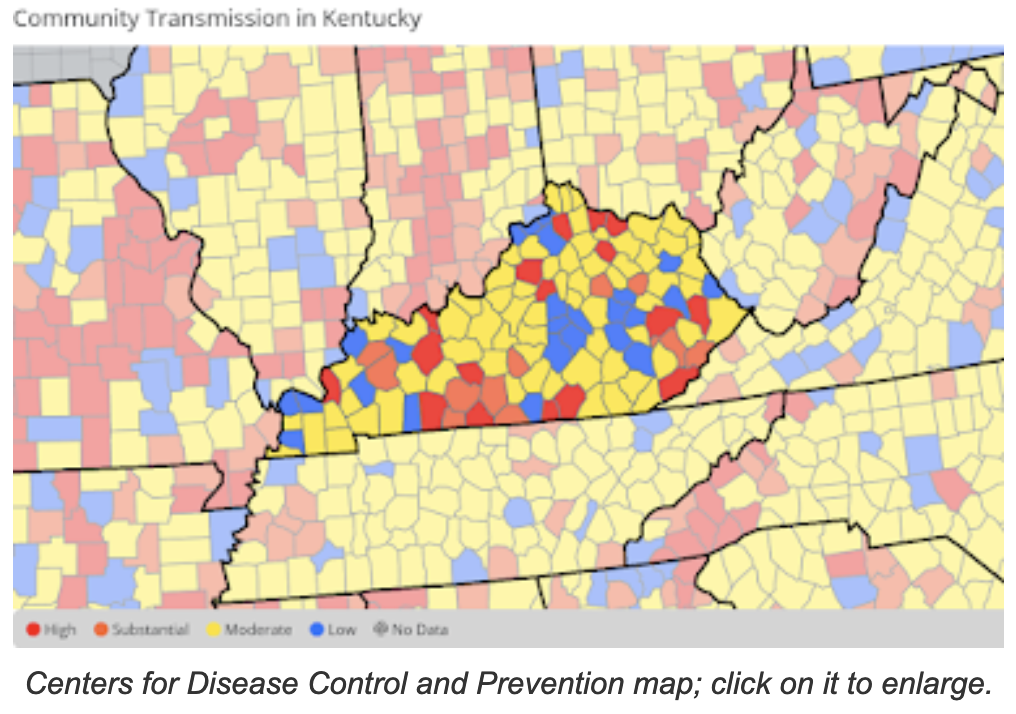State and federal measurements of Covid-19 in Kentucky continue to improve each week, but Kentuckians are still dying from the virus and new research suggests that even mild cases of the disease can have long-term effects on cardiovascular health.
The latest weekly report from the state Department for Public Health showed there were 1,717 new cases of the coronavirus in Kentucky last week, or 245 per day. That’s a 24% drop from the previous week’s 2,264 cases.
The state’s new case-rate dropped to 3.83 cases per 100,000 residents, down a bit from 3.93 the prior week. The top 10 counties were Breathitt, 24.88 cases per 100,000 residents; Clinton, 12.58; Wayne, 10.54; Green, 10.45; Knott, 9.65; Edmonson, 9.41; Shelby, 9.03; Webster, 8.83; Carter, 7.46; and Grant, 7.41.
The Centers for Disease Control and Prevention risk map shows a small cluster of three Kentucky counties with a medium risk of Covid-19 transmission, Bracken, Mason and Fleming. The medium risk counties are shown in yellow. The rest of the state has a low risk of Covid-19 transmission, shown in green.
The CDC also has a community-level transmission map, largely used by health-care facilities and researchers, that shows the level of virus in each county, at one of four levels. The latest map shows 25 counties with a low level of transmission and 67 with a medium level; the rest are either substantial or high, withe the biggest cluster in the Bowling Green area. The state says residents should take their guidance for prevention from the other map.
Last week, the state attributed 57 more deaths to Covid-19, up from 51 in the previous report, bringing the state’s death toll to 18,512.
Mild cases of Covid-19 can hurt your heart
“Given the number of people infected with Covid-19 worldwide, the fact that infection can have harmful effects on cardiovascular health in young people who had a mild form of the disease warrants close monitoring,” Professor Ana Jeroncic from the University of Split in Croatia, who led the study, said in the release. “The question remains as to whether this harmful effect is irreversible or permanent, and if not, for how long it lasts.”
The release notes that the study, published in the Journal of Clinical Medicine, was the first to compare pre and post Covid-infection levels of arterial stiffness, a marker associated with aging and function of arteries. Participants were monitored between October 2019 and April 2022 and most were less than 40 years old and healthy.
